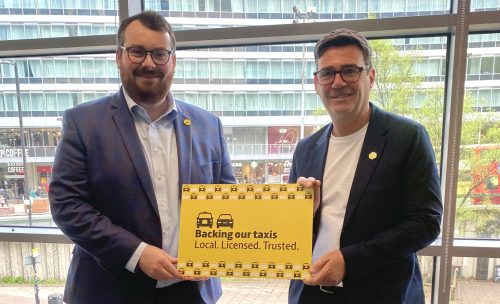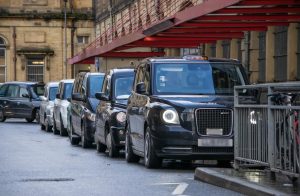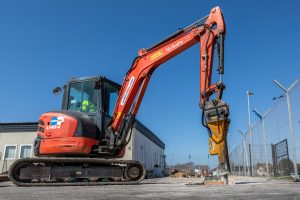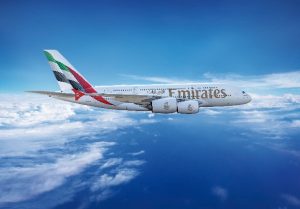Burnham to fix broken taxi system – half of licences issued from Wolverhampton

Greater Manchester Mayor Andy Burnham has launched a campaign and consultation to ban out of area licensing for taxis in Greater Manchester and introduce a new regime where taxi drivers are accountable locally.
He described the current system as “broken” and said it was unacceptable that half of taxis operating in Greater Manchester are licensed out of the area, mainly in Wolverhampton.
Launching a new campaign ‘Backing our taxis: Local. Licensed. Trusted.’ Burnham said the local phenomena requires a national response and called for the government’s English Devolution Bill to both devolve power on taxis to Mayoral Combined Authorities and put a stop to ‘out of area’ licensing.
He said local accountability is critical to ensure public safety and trust in taxis as an essential part of the transport system. He says the move would not only help drive up standards, but also better support the livelihoods of Greater Manchester’s taxi drivers through control of numbers and better incentivisation.
Data shows that the West Midlands is outstripping other areas in terms of licences issued, with 11.4% of all private hire licences issued in England last year coming from City of
Wolverhampton Council – up from 0.4% in 2015.
He said he is launching a campaign with the slogan “Backing our taxis. Local. Licensed. Trusted.”
A consultation will seek to understand the issues behind current taxi licensing policy through surveys and interviews.
Trafford Council chief executive Sara Todd, the officer with responsibility for taxi licensing, is to lead a review, which will be undertaken by ARUP/AECOM. A report with recommendations on the longer-term visions for taxis and licensing will be considered by the Greater Manchester Combined Authority in Autumn 2025. She acknowledged that over half of taxis in Greater Manchester are currently licensed out of area.
Burnham said the system at the moment is a threat to public safety: “We need a law that supports us to have a local, licenced, trusted taxi trade in Greater Manchester, and at the moment, we don’t have that.
“The whole out of area working operation, does operate against public safety. Local licencing is there for a reason. It’s so that local councils and councillors can make sure that they do that important job of licencing vehicles with the interests of the safety of the public in mind and drivers, so that then you know they can make sure people operating in our communities can be accountable to communities for ensuring the safety of those vehicles.
“We’ve got to get back to that basic principle of a taxi trade that has that trust across the board.”
He also says a clearer link between Greater Manchester Police and licensing authorities would allow for swifter investigation into incidents and collisions where a taxi is involved.
It comes as figures show that more than 11% of England’s private hire vehicles are licensed by one local authority, City of Wolverhampton Council, up from below 0.5% less than a decade
ago.
In Greater Manchester, nearly half (49%) of private hire vehicles are now licensed by authorities outside of its ten councils. The city-region’s out of area figure of more than 12,000 has risen sharply from just under 7,000 in 2023.
Burnham said: “We want to get under the bonnet of the issues that affect them, review how we can improve our own licensing and incentivise them to register here without dropping standards. We’re committed to doing what we can under the current system, but it will only be effective if it’s done in lockstep with change on out of area licensing at a national level.”
Cllr Eamonn O’Brien, leader of Bury Council, and Clean Air lead for Greater Manchester, also linked a new licensing regime to clean air.
Earlier this year, Greater Manchester agreed a new Clean Air Plan with government to tackle air quality and cut emissions without the need for a charging zone.
The 12-week discussions with the taxi trade will include how best to allocate an £8 million fund for drivers of Hackneys carriages (or black cabs), which formed part of the Clean Air Plan deal. Greater Manchester will also explore how private hire vehicles can also be supported to make the switch to modern vehicles, potentially through subsidised, low interest loans.
It has also been confirmed that leaders of Greater Manchester’s ten local authorities have endorsed proposals to give drivers more time to upgrade their vehicles, extending the emission compliance date from the end of 2025 to at least 31 December 2026*. Whilst the decision will be down to individual licensing committees to consider and agree proposals, leaders have backed the extension, as well as an exemption for vehicles until the maximum age limit (as part of existing licence agreements with individual drivers).
Burnham said he would look at grants of up to £1200, or loans of up to £5,000 to help their makes their vehicles compliant with clean air legislation.
Cllr O’Brien, said: “The importance of taxi and private hire vehicles cannot be underestimated in keeping people across Greater Manchester moving day in, day out.
“They support our visitor and night-time economy by providing door-to-door transport for thousands of residents and workers and play a role in helping improve air quality on the city-region’s roads.
“Just like the Bee Network, we want to have the right standards in place to encourage drivers to license here in Greater Manchester. But we understand the pressure being faced by drivers, and that’s why we want to work with the trade to find out how we can best ensure all journeys are safe and reliable for passengers. We also want to provide the right support and time to help them transition to cleaner vehicles, helping deliver a cleaner, greener city-region.”








